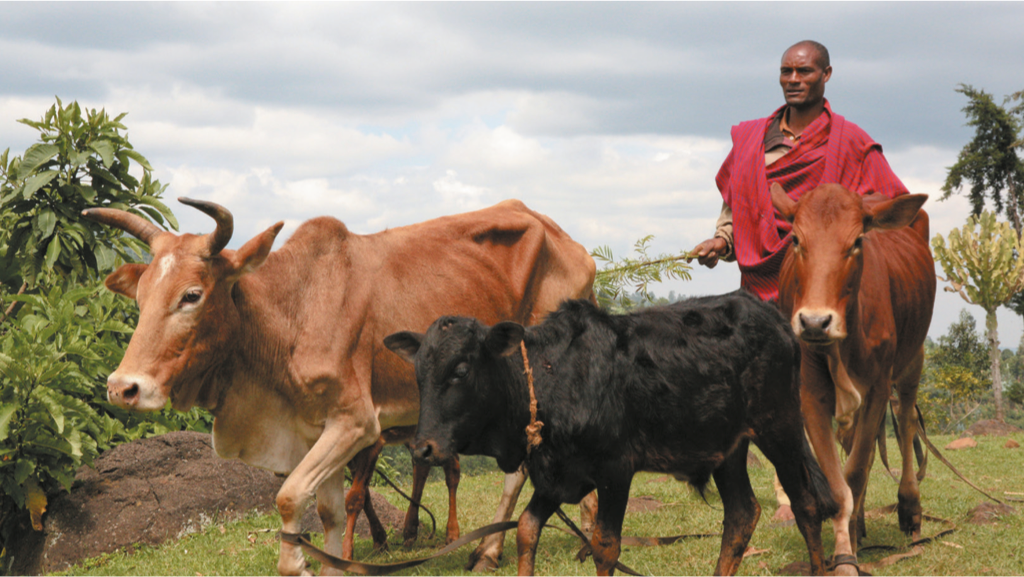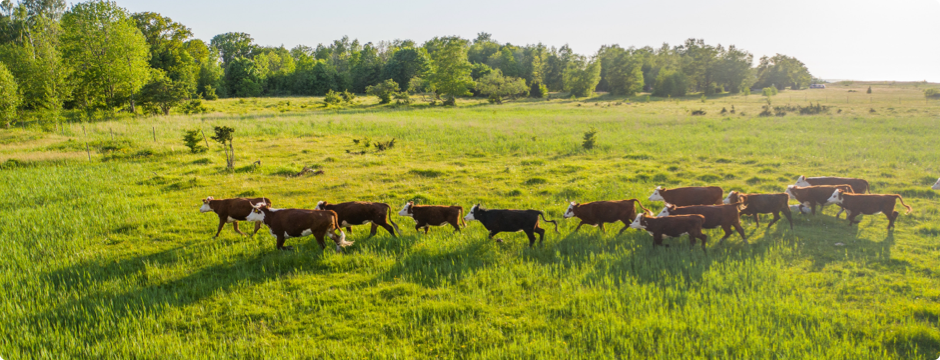
Animals: Innovation in Animal Health
Access to Veterinary Care in Emerging Markets
ASPIRATION
Grow access to vet care in emerging markets

Through our A.L.P.H.A. initiative with focus in Africa, by 2025 we will:
TARGET
Train 100,000 farmers, veterinary professionals and lab technicians
2021 PROGRESS
Trained 25,500 farmers, veterinarians, para-veterinarians, distributors and lab personnel over 1,063 training days.
TARGET
Increase women trainees to 50% of trainees
2021 PROGRESS
30% of trainees are women.
TARGET
Treat 10 million cows with positive implications on smallholder livelihoods, food security and the environment
2021 PROGRESS
Treated 4.8 million cows1.
1 Assumption used that every cow receives at least 2 doses (treatment and prevention).
TARGET
Treat 200 million chickens with positive implications on smallholder livelihoods, food security and the environment
2021 PROGRESS
Treated 121.6 million chickens2.
2 In 2021, we revised our assumptions from every bird receiving at least 3 doses to 5 doses (treatment and prevention) due to the higher rate of adoption of broader vaccinations. We recalculated 2020 data to reflect this change and it is reflected in the reported number.
In line with our purpose to nurture the world and humankind by advancing care for animals, we focus on supporting customers in underserved rural communities working to predict, prevent, detect and treat illness in animals and to address unmet medical needs. Through this, we also support a shift from disease treatment to prevention, thus reducing use of antimicrobials in livestock.
Our African Livestock Productivity and Health Advancement (A.L.P.H.A.) initiative, co-funded with the Bill & Melinda Gates Foundation, helps to improve livestock health and positively impact farmers’ livelihoods in Sub-Saharan Africa. The initiative began in 2017 in Uganda, Nigeria, and Ethiopia, and later expanded into Tanzania. The initiative strives for gender equality in animal health training for women and it anchors on three pillars:
- Veterinary medicines and services
- Veterinary laboratory networks
- Training and education
In 2021, we started transitioning our A.L.P.H.A. initiative activities throughout the broader Sub-Saharan Africa region, where Zoetis is committed to sustain and grow its presence by focusing on distribution improvement and geographical coverage, technical support, diagnostic support, digital capabilities, training and education and support of private-public partnerships.
We are focused on providing veterinarians and farmers throughout Sub-Saharan Africa with tools to help them raise healthier and more productive animals – contributing to both a sustainable food supply and their livelihood. Of our products, 62 have received full regulatory approval for commercialization and an additional 120 are pending approval, which will increase the availability of quality products in Uganda, Nigeria, Ethiopia and Tanzania. Our livestock portfolio includes products for swine, poultry and ruminants, including important vaccines for disease prevention. Pooled vaccination projects, where a team of veterinary professionals vaccinate animals at small scale farms, have also been launched in all four countries to increase access to quality vaccines applied in a correct and efficient manner. The number of doses of treatment and prevention products supplied to the markets have increased 35x in 2021 compared to 2016, which will have a considerable impact on livestock health in the region.
Farmers in Sub-Saharan Africa face negative economic impact due to inappropriate disease treatments and an increased risk of antimicrobial resistance due to the lack of diagnostic services, including veterinary input and correct disease diagnosis. In 2021, five new labs were opened in collaboration with local strategic partners. By the end of 2021, we opened a total of 16 labs to serve farming communities, which included conducting intensive training for laboratory staff and vets on diagnostic testing and sampling, with logistics lines developed in collaboration with farming associations to support farmers.
In addition, we expanded the development and roll-out of a digital app called ‘Lab Cards.’ This successful ‘lab-in-a-pocket’ concept was designed to help improve lab sample management and results communication. An estimated 20,000 chicken flocks and 20,000 cows were tested to date in an effort to improve applied treatment and reduce antibiotic usage.
Training and education are important in Sub-Sahara Africa to help empower local communities to improve livestock health and welfare and to ensure that veterinary medicines are effective through correct storage and administration to animals. To date, 25,500 individuals, including farmers, veterinarians and para-veterinarians, distributors, and lab personnel have been trained through 1,063 training days. In 2021 alone, over 12,300 people were trained in 423 training days, with an estimated extended reach of some 615,000 people through a Train-the-Trainer approach1. Training courses have been tailored to address training gaps identified by regional surveys to ensure maximal relevance to stakeholders. Disease prevention through vaccination is at the forefront of training topics. Since the onset of the COVID-19 pandemic, there has been a shift toward online training delivery due to limitations on face-to-face interactions. Participation declined among females and this decrease reflects lower digital readiness and connectivity availability for women farmers, which is a key point of focus for improvement in 2022.
1 Assumption used that every trained person trains 50 other people.
